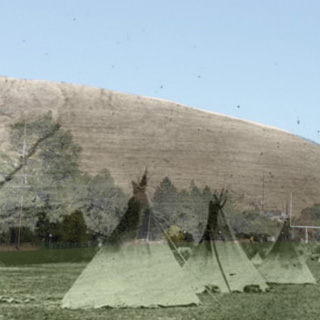Native American Graves Protection and Repatriation Act
Please note: this website is new, and still being built! Thank you for your patience.
The University of Montana acknowledges that we are in the aboriginal territories of the Salish and Kalispel people. Today, we honor the path they have always shown us in caring for this place for the generations to come.
The Native American Graves Protection and Repatriation Act (“NAGPRA”), which has been in effect since 1990, requires any institution that receives federal funds to implement a process to return Native American Ancestors and cultural/sacred belongings to an affiliated tribe, organization (including Native Hawaiian organizations), or lineal descendant. If a valid NAGPRA claim is presented, the institution must ensure that the repatriation process is carried out.
Repatriation is successfully carried out through relationship building with tribal partners. The repatriation process should include consultation with tribal representatives throughout, with emphasis placed on their perspectives, priorities, and interests regarding the stewardship and return of their Ancestors and belongings.

AT UM:
NAGPRA at UM is a campus-wide initiative to realize and expand the mission of NAGPRA, return and repatriate Ancestors and belongings, and build and sustain meaningful relationships with Tribes through the Northwest and beyond.
In addition to NAGPRA, UM falls under the Montana Repatriation Act. This act provides a mechanism to provide for repatriation to a tribal group, lineal descendant, or next of kin establishing cultural affiliation with those Ancestors and/or belongings that were taken from unprotected burial sites.
Adherence to these laws is a minimum. UM strives to go beyond its legal responsibilities and extend its efforts to Ancestors and their belongings outside of these statutes.
Clarification of vocabulary/preferred terminology:
Belongings = materials/objects (versus 'artifacts')
Ancestors = specific to human remains
